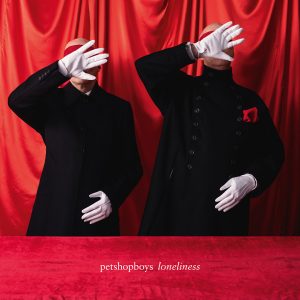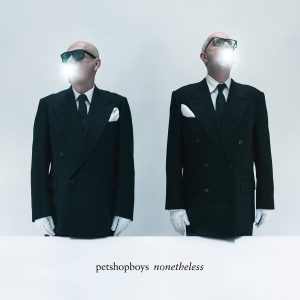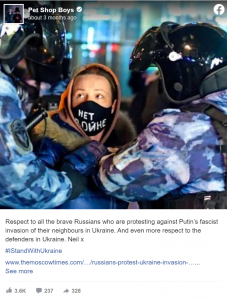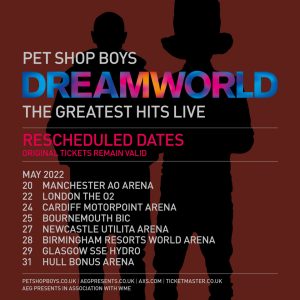With tap dancing gladiators. The Pet Shop Boys tell Rupert Smith about their new musical.
There’s an old gay joke: if the Sistine Chapel had been decorated by a heterosexual, it would have been wallpapered. The same principle applies to musicals. If you let straight men loose on the genre, you get Ben Elton, football and the Troubles. Unleash gay men, and you get West Side Story, Kiss Me Kate and the works of Stephen Sondheim. So when it was announced that the Pet Shop Boys had teamed up with playwright Jonathan Harvey (Beautiful Thing, Gimme Gimme Gimme), nobody was expecting anything laddish. In fact, their musical, Closer to Heaven, which opens at the end of the month, makes Funny Girl look like a Guy Ritchie movie. ‘We never sat down and said, ‘Let’s write a gay musical,” says Neil Tennant, the Pet Shop Boy who actually speaks. ‘The gay element of the story is about transformation, about growing up and realising what you want to be. That’s a very musical subject.’ Maybe – but Closer to Heaven is also set in a gay nightclub, features a cast of dancers who strip down to boots and sequined G-strings, and revolves around a faded female icon of the Judy Garland variety. All this and show tunes too. Closer to Heaven has been a long time coming. Pet Shop Boys fans won’t be surprised by the move: their songs, and particularly their live shows, have always been theatrical. In 1997 they had a residency at the Savoy Theatre and released a version of Somewhere from West Side Story. Many of their best songs (Rent, It’s a Sin, Being Boring) sound like hits from non-existent shows. Closer to Heaven has been on the back burner since 1994, when the BBC suggested they should collaborate on a musical with Harvey, then riding high on the success of Beautiful Thing. ‘He’d also written a TV play called West End Girls, about two East 17 fans coming to London to meet Brian Harvey, so we knew we were on the same wavelength,’ says Tennant. ‘But I was never keen on doing a musical for television. It’s a lot of work for something that’s just going to be shown once, so we decided to do it properly, for the theatre. We started writing in 1996, and it’s been a sporadic process ever since.’ Some of the songs – Closer to Heaven, Vampires, In Denial – have been waiting in the wings for a few years, and found their way on to the last Pet Shop Boys album, Nightlife. With a draft version of the show prepared, Harvey (book), Tennant (lyrics) and fellow Pet Shop Boy Chris Lowe (music) financed a workshop in May last year to find out if any of it actually worked. Frances Barber was drafted in to play Billie Tricks, the drug-addled mother hen/rock chick, and was such a hit that more songs were added (despite Barber’s claims that ‘I can’t sing, not even in the bath’) and her role expanded. In between writing and gigging commitments, the final version of the show was assembled and a venue found: the Arts Theatre, near Leicester Square. ‘To me this feels like an off-Broadway opening,’ says Tennant. ‘I didn’t want to compete with the big West End stuff. The Arts Theatre is a small venue, just a plain black box, no gilt, no cherubs. The original plan was to stage the show in a non-theatrical venue. That was our manifesto: a musical with contemporary pop music in a non-theatrical venue. But if we’d waited for the perfect place to come along, we’d never have got it off the ground.’ They are eager to distance themselves from run-of-the-mill West End shows, and the gay-sex-and-drugs milieu is a far cry from Les Misérables across the street. But not that far: Closer to Heaven is produced by Andrew Lloyd-Webber’s Really Useful Group and, despite the clubland trappings, it still tells a boy-meets-girl (then-meets-boy) story in which the characters sing songs about their feelings. There are dancers, some of whom have been rescued from other West End shows such as Napoleon. There’s no orchestra (the music is nearly all produced elecronically), but there are big numbers. ‘I appear at one point on a huge sofa in the shape of a pair of lips,’ says Barber. ‘Then there’s my rap number about Caligula, with all the dancers in tiny gladiator costumes doing a tap dance.’ ‘What I like about musicals,’ says Jonathan Harvey, ‘is that you get high emotion – why else would people burst into song? – and you get spectacle. I’m learning fast that people don’t go to a musical to hear the words. They go for the music and the visual excitement of it. I was hooked on musicals from a very early age: when I was five years old I was up in my bedroom dancing to My Fair Lady while my brother was playing football down the street. There wasn’t much hope for me, was there? My mother used to tear her hair out.’ Tennant and Lowe cite similar formative experiences. ‘One of the first films I ever saw was The Sound of Music,’ says Lowe, in a rare burst of articulacy. ‘I just remember that magnificent crescendo at the beginning, before she launches into, ‘The hills are alive.’ My little brother was so terrified he ran out of the cinema and never came back.’ Lowe senior stayed, though, and has dipped in and out of musicals ever since, learning a thing or two about a good tune along the way. Tennant’s is a more scholarly interest: he discovered Sondheim in the 1980s and has been an ardent follower ever since. ‘The first Sondheim show I saw was Follies, and I remember thinking Losing My Mind would make a good hit record. So we went away and recorded it with Liza Minnelli and loads of people thought we wrote it.’ Given this track record, it seems inevitable that Tennant, Lowe and Harvey should write a musical together, even create their very own camp icon. Billie Tricks is an amalgam of Nico, Marianne Faithfull, Debbie Harry and every other wayward rock’n’roll queen. ‘I see her as an Absolutely Fabulous version of Nico,’ says Tennant. ‘She’s someone who was a big star, who takes herself absolutely seriously and is often unintentionally funny for that reason. Sincerity is the essence of true camp. When Judy Garland sang Over the Rainbow, she didn’t wink at the audience and go, ‘This is so flipping camp, I can’t believe I’m singing it.’ She meant every word.’ Billie’s big 1960s hit (which should, with luck, be on sale in the foyer) is called Run Girl Run, a protest number inspired by the famous Vietnam photograph of the naked, napalmed child. (Sample lyric: ‘Run girl run away from the sun/ Napalm burns all over your body . . . the western world would like to say sorry.’) Barber has flung herself into the role ‘too far, perhaps. I’ve started going out every night with the dancers, and I’ve become a mother figure to them. They fix my eyelashes for me and they tell me about all the new party drugs that I’ve never even heard of, let alone taken. I was completely intimidated by them at first: the boys are incredibly handsome with washboard stomachs, the girls are all beautiful and sexy. I felt old and wrinkled, and I’ve been going to the gym three times a day just so that I don’t look grotesque standing next to them. Now we’re like a little family. They tell me all their secrets about depilatory creams and shaving their hairy arses. I’m learning a lot, fast.’ Barber may steal the show, but there’s plenty more on offer. Choreo-graphy is by Peter ‘Billy Elliott’ Darling. Paul Keating (who starred in the West End production of Tommy) is the male lead Straight Dave, and there’s enough music to make up a cast album that will be released later in the year. In theory, it’s an irresistible combination. Tennant isn’t given to blowing his own trumpet, but he’s made it clear that he thinks Closer to Heaven is a blueprint for an ailing theatrical form. ‘You look at some of the shows that are on in the West End, and you just think, ‘Why?’ They’re so obviously not going to work. There seems to be an idea that you can make a musical out of any old subject, but things like the life of Napoleon just aren’t appropriate. Closer to Heaven is a much more traditional musical. It’s a love story, and it’s about show business. We’ve set it in a world that we know and love, and that will come across.’ ‘You’ll come out of the show smiling and singing,’ says Lowe. ‘It’s definitely a feelgood evening. Although of course this is Pet Shop Boys, so it’s feelgood with a touch of feelbad. That’s how we like it.’
Taken from: The Guardian
Interviewer: Rupert Smith





